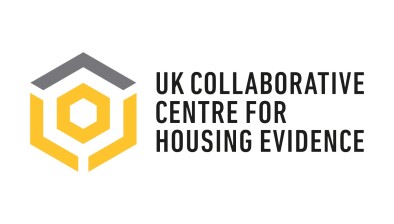Dr Gareth Young: ‘They want you to win’ - inclusive growth and the role of social housing providers

Dr Gareth Young
Dr Gareth Young explores the evolving role of social housing providers in delivering employment & business support.
Over the last year, I have been working with Communities that Work and Unity Homes and Enterprise to explore the role that Unity Homes and Enterprise play within the community in which they are based, and to get a sense from across both housing and employment support sectors about the role of housing providers when it comes to supporting their tenants into work.
There have been some comprehensive studies that have explored the links between housing and employment, and the purpose of this work was to continue these conversations, and to get a refreshed view on the perspectives of those with insights into this area. For the work, I conducted 35 interviews with national and local informants (individuals working in housing, employment support and other related services), staff at Unity and tenants and members of the community who access services provided by Unity (this included both their employment and enterprise support).
This research, intended as a primer for Unity to go on and commission more in-depth research, was launched last week. To mark this, we held a webinar, chaired by Lynsey Sweeney, the managing director at Communities that Work, which reflected on the current political landscape in light of the government’s White Paper ‘Get Britain Working’, which was launched just a couple of days before. Lynsey set the scene, explaining how the white paper sets out the government’s position on employment and skills support going forward and the target of an 80% employment rate in the UK. Lynsey also outlined how the look and feel of Jobcentre will shift as it becomes a career service, as well as finding employment and administering Universal Credit. There are currently 10 JobsPlus pilots being tested, to explore how new, more inclusive approaches to employment support can look within communities.
With national renewal to “kick start growth” a key pillar of this government’s agenda, employment support and housing is sitting at the centre of much of their early work, and whilst this wasn’t the case at the start of the project, the current context makes these conversations even more relevant. We find ourselves in a position where there are reduced, or stagnant, funding resources available to deliver support since the loss of the European Social Fund and New Enterprise Allowance, rising costs making budgets have to stretch further, but also having significant impacts on households, particularly those on low-incomes, patchy and fragmented support offers throughout the country and the increased pressures, over time, on housing providers.
For the webinar, I reflected on a snapshot of the findings that struck and stuck with me from my time on the project. There’s a lot of focus right now, and rightly so, on the need for long-term strategic thinking in many social policy areas – housing and employment being two – to help address the many crises spanning these sectors. However, there is also an acute need for immediate action and support for people who need help right now. The pressure housing associations are under from different directions – regulation, supply, decarbonisation – has been described to me as a time of both opportunity and risk.
When speaking to people who are accessing the services provided by Unity, there were a few strong, consistent messages coming out of this. In particular, the power of informal conversations and support being offered without conditions. For many people who find themselves out of work for whatever reason talked about feelings of disempowerment, a lack of confidence and just need a trusted, supporting relationship. The reasons people are out of work vary considerably, but having someone who they can talk to, who they feel they can trust, and who is willing to help can make a significant difference. In this study, many of these conversations began with a simple landlord ‘health check’, which allowed the Unity staff to better understand their tenants’ situation and enabled them to signpost people to other services they had on offer.
Another important theme links to the ambition of inclusive growth. We know that there are national programmes being delivered through the DWP to support people into work. And for many, these structures work sufficiently. However, it was said that the offer from organisations such as Unity, who are embedded within their community and who understand the different structural inequalities and barriers that are faced by some people – reasons such as minoritised ethnic backgrounds or disabilities to name two examples that came up frequently – are not replicating the work being done nationally, but actually they are allowing people a chance who might not otherwise do so well through more mainstream mechanisms. This is because organisations such as Unity and others who are place-based recognise the challenges some people are facing and can tailor support to help those who might not be starting from the same point.
This link and deep understanding of the community in which a housing provider is situated, with a much richer understanding of the ambitions of those in the community, as well as with their power to broker relationships with other organisations such as employers, means that a housing provider is in quite a unique, and powerful, position to drive forward more equitable futures for more people. This was described to me through the research using phrases such as being provided with a chance to fail and making you feel like they want you to win.
It was great to hear more about the work of HACT from Dean McGlynn their Communities Network Lead. Amongst their extensive programme of work, HACT do lots of work measuring the social value of programmes such as those we have discussed in this report. Dean highlighted that a big theme from his perspective was the way in which housing associations are uniquely placed within communities as anchor institutions, and current pressures to the sector are placing in the region of £23m of social value at risk.
Both Cedric and Dean emphasised the importance for social housing providers to look at their roles, and that there are strong arguments that can be made to show that housing providers should still be considering broader support of their tenants as part of their core mission, and not ‘nice to haves’, as the structural inequalities that continue to persist are impact people in social housing’s live chances. The entire panel had lots of great thoughts and insights, and this blog cannot do their expertise justice, but you can listen back to the recording here.
Where next? It feels like there’s growing consensus about the need for greater collaboration and partnership working in many aspects of social policy, and especially in areas connected to place-making, of which housing and employment are two key areas. With lots of work happening, but in quite fragmented ways, but also in complex and varied contexts with many ‘moving parts’, I would be keen to see this conversation continue, and to find ways to better share experiences, challenges and good practice.
- Dr Gareth Young is a knowledge exchange and impact fellow at CaCHE








